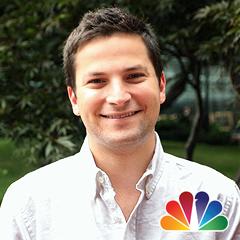Breaking News Emails
“Avengers: Endgame,” the big-budget Marvel epic that opens nationwide Thursday night, is the pinnacle of one of the most popular and lucrative movie franchises on the planet — a 22-installment global juggernaut with a sprawling cast and elaborate mythology.
But the movie is also the culmination of real-world storylines that have dramatically transformed Hollywood over the last decade, reshaping business strategies and redefining commercial filmmaking as we know it.
The superhero saga’s potentially record-smashing opening weekend — projected to bring in $260 million to $300 million in the United States alone — will deliver a megawatt prize to Disney's content empire. But the massive grosses will represent the ultimate payoff for the American film industry writ large, too.
Here’s a look at the financial forces and cultural trends that have been steadily building to “Endgame.”
Disney’s unprecedented dominance
Walt Disney's company has long burnished its international brand with animated musicals and family-friendly comedies. But with its acquisitions of Marvel in 2009 and “Star Wars” in 2012, the studio has grown into a hit-making machine of unmatched power.
Disney topped the domestic box office for each of the last four years, setting a record for worldwide grosses in 2016. The company’s purchase of 20th Century Fox has widened its scope, and the combined entertainment colossus could now account for roughly 35 percent of the domestic movie market.
'Avengers: Endgame' cast and crew give inside look
April 25, 201901:46"They've done some monumentally strategic brand-building over the last 10 years," said Paul Dergarabedian, senior media analyst at measurement and analytics company Comscore. "It's a strategy that reflects incredible patience, acquiring the best brands but waiting for the long-term results to come in."
Marvel is arguably Disney’s crown jewel. “Black Panther” and “Avengers: Infinity War,” both released last year, sit comfortably in the top-five movies in domestic box-office history; “Infinity War” holds the record for biggest worldwide opening.
“Endgame,” which could conceivably become one of the highest-grossing movies of all time by the end of its theatrical run, is as much a testament to Marvel’s massive appeal as it is to Disney’s historic dominance of multiplexes around the world.
Beijing blockbusters
The Avengers series would not be the behemoth it is today were it not for the meteoric rise of the Chinese box office — and that country’s insatiable appetite for special effects-driven epics and big-budget fantasy sagas.
China, home to more than 1.3 billion people and a burgeoning middle class, boasts more than 40,000 movie screens and the second-largest box office behind the U.S. The country is on track to become the largest movie market in the world by next year, according to some analysts.
“Chinese audiences love the spectacle of big-budget American franchises,” Ben Fritz, the author of “The Big Picture: The Fight for the Future of Movies,” previously told NBC News, adding that middle-class Chinese moviegoers, some born in rural poverty, treasure a night at the theater.
Marvel, with its army of recognizable characters and world of kid-friendly merchandise, has become one of the most beloved American brands in Chinese pop culture since the premiere of “Iron Man” in 2008. "Infinity War" grossed almost $360 million in the Middle Kingdom — more than any other American-produced movie released there last year.
“Endgame” promises to be the biggest draw yet. The film, released early in China and running on hundreds of thousands of screens there, smashed pre-sales records and garnered more than $107 million through Wednesday, according to The Los Angeles Times. It could become the most successful Hollywood import ever released in China.
Superhero fever
The most obvious force that has driven Hollywood for much of the last decade might also be the most crucial.
American moviegoers, particularly younger audiences, have shown an insatiable appetite for films, television shows and other media featuring caped crusaders, including Marvel mainstays like Iron Man and Thor as well as Batman, Superman, Wonder Woman, Aquaman and others. (Here’s a handy chart.)
The trend was inaugurated by Tim Burton’s “Batman” (1989), gained steam throughout the 1990s, kicked into high-gear with Sam Raimi’s original “Spider-Man” (2002), entered a creative renaissance with Christopher Nolan’s “Dark Knight” trilogy, and then started swallowing up unrivaled cultural oxygen with the ascent of Marvel.
The reason for the obsession? The theories range from the American public’s longing to see uncomplicated heroism in an age of political cynicism to a desire for escapism in the uncertain aftermath of the terrorist attacks of Sept. 11, 2001, and the financial crisis.
Franchise, Inc.
Steven Spielberg’s “Jaws” (1975) and George Lucas’ original “Star Wars” (1977) ushered in the age of Hollywood blockbusters, giving way in the 1980s and the 1990s to high-concept, high-returns series such as “Ghostbusters,” “Back to the Future” and “Jurassic Park.”
Avengers Endgame Cast's Best Interviews on TODAY
April 25, 201907:52But the 2010s have marked a turning point as major movie studios — most notably Disney, Warner Bros., and Universal — have doubled down on all-audience “tent-pole” films: expensive, special effects-stuffed extravaganzas anchored by familiar brand names and sometimes even toys. (Universal Pictures, like NBC News, is owned by Comcast.)
“The Lord of the Rings” trilogy and the “Harry Potter” series were early examples, but Marvel — particularly with its Avengers quadrilogy — has just about perfected the form, conditioning moviegoers to expect a high-octane, heavily-hyped sequel or spinoff roughly three times a year.
The major studios have also invested in “shared universes," or franchises in which characters coexist and interact in the same narrative timeline across prequels, sequels, spinoffs and, as of this weekend, three-hour crossover events like “Endgame.”
In other words: That’s why Marvel flicks are officially known as the Marvel Cinematic Universe — or “MCU” for the die-hards.

